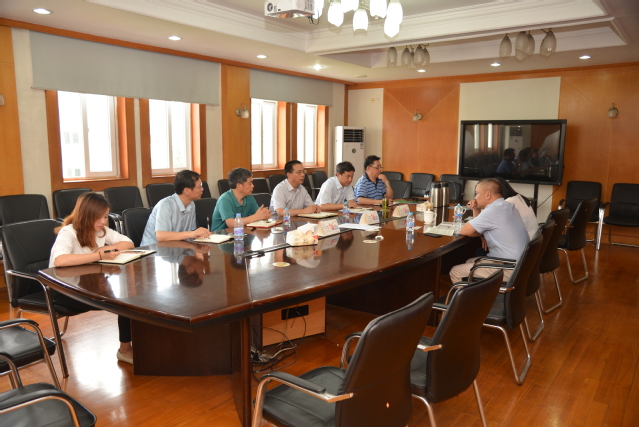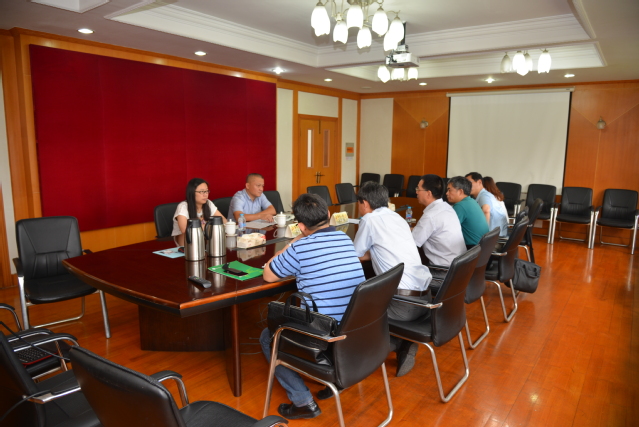In order to deepen school-enterprise cooperation and fulfill the school-enterprise cooperation agreement substantially, Yuan Jianping, HR administrative general manager of Shanghai NTFB Combustion Equipment Co., Ltd., Lu Xiaoyu, HR director of Shanghai NTFB Combustion Equipment Co., Ltd. visited SPA. Gao Ju, principal of SPA, Huang Hanjun, vice principal of SPA ,and leaders of relevant departments, attended the meeting.
At the meeting, Yuan Jianping said that SPA and Shanghai NTFB Combustion Equipment Co., Ltd. have just signed school-enterprise cooperation. The fine cooperation will strengthen the construction of enterprise talent team, optimize talent structure, and improve employees' comprehensive qualities to satisfy the development of the enterprise on the base of mutual trust and support. Meanwhile, Yuan Jianping also put forward the needs of the enterprise in the aspects of human resources, talent reserve, employees' training, etc.
Gao Ju expressed his welcome to the visitors. He said that the communications and exchanges between school and enterprise will promote the cooperation, which is crucial for achieving school-enterprise win-win outcomes. Based on region and rooted in regional economy, vocational education can reinforce the adaptability and flexibility of talent supply, provide better service for enterprises and society, and make contributions to the development of regional economy. Meanwhile, Gao Ju introduced in detail the development orientation of electromechanical majors according to the demands of enterprises and the measures SPA has taken in innovating entrepreneurship, industry-education integration, combined engineering, etc. He also put forward the problems of current vocational education and analyzed the solutions. Both sides seriously discussed the issues of talent cultivation system, pre-service and post-service training, etc. They also exchanged ideas on ways of broadening channels of vocational education talent cultivation and promoting vocational education industry-education integration.
Huang Hanjun mentioned that both sides should promote understanding of each other, provide mutual support, such as teachers' plant practice, hiring enterprise experts as special part-time teachers, students' cognitive internship in enterprise, etc. to make every aspect of cooperation solid and substantial.
At the meeting, both sides had concrete communications and exchanges on cooperation contents and modes. They agreed that the school-enterprise cooperation will be lasting for a long period of time in the future. Only through more communication and collaboration of both sides will they find out the long-term efficient mechanism of school-enterprise cooperation to achieve win-win outcomes and to promote students' comprehensive development.


